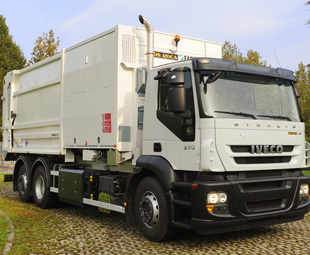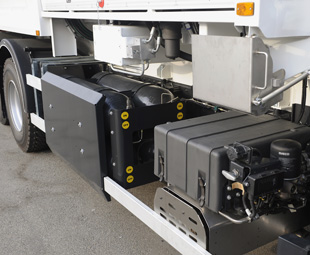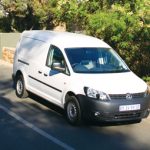Iveco goes au naturale

Iveco has strutted its natural gas stuff at this year’s European Natural Gas Summit. The event, held in Brussels from October 24 to 25, is the only one of its kind to unite Europe’s top fleet managers with senior level executives from across the natural gas vehicle value chain.
Iveco has a full range of Compressed Natural Gas (CNG) vehicles – the Daily Natural Power (3,5 tonnes), the Eurocargo (which ranges from 12 to 16 tonnes) and the big boy Stralis CNG (40 tonnes). The Stralis Liquefied Natural Gas (LNG) version completes the full range of vehicles.
From an environmental viewpoint, the CNG technology guarantees considerable advantages. Lower CO2 emissions, less particulate emissions and reduced noise levels are among the green benefits. The economical advantages of using natural gas-powered vehicles certainly trump that of diesel use. A Stralis LNG vehicle delivers a reduction in total cost of ownership of up to 12 percent on a regional delivery mission, over an average distance of 80 000 km a year, for five years.
 “Natural gas vehicle technology is a priority for Iveco,” says Alessandro Mortali, senior vice president of the Iveco heavy range. “We were quick to recognise the importance of methane as an alternative energy source. CNG and LNG are mature technologies, delivering low-impact transport solutions: CNG vehicles are ideal for urban missions, LNG vehicles allow the use of natural gas in regional and national distribution.”
“Natural gas vehicle technology is a priority for Iveco,” says Alessandro Mortali, senior vice president of the Iveco heavy range. “We were quick to recognise the importance of methane as an alternative energy source. CNG and LNG are mature technologies, delivering low-impact transport solutions: CNG vehicles are ideal for urban missions, LNG vehicles allow the use of natural gas in regional and national distribution.”
It appears as though operators are also embracing the technology (well, overseas anyway). Following a year-long trial which yielded impressive results, UK based Coca-Cola Enterprises has ordered another 14 gas-powered Iveco Stralis trucks. Sydeme, the public company in charge of the management of domestic waste in Moselle-Est (France), has also renewed its fleet with 34 new natural gas vehicles, which include three Daily and 25 Stralis derivatives.
Published by
Focus on Transport
focusmagsa




